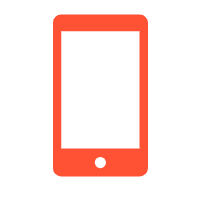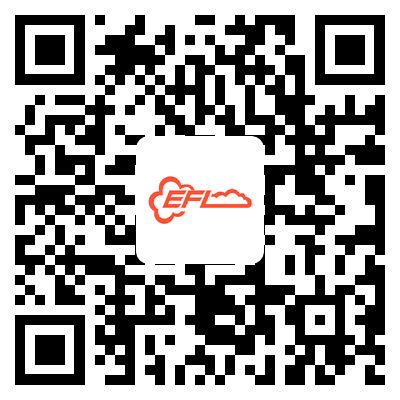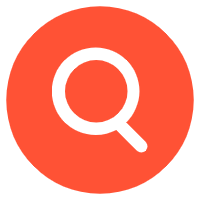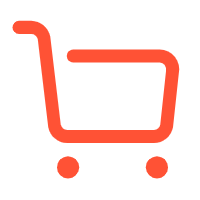
EFL · National City (Nether land)
- National elements
In the Netherlands
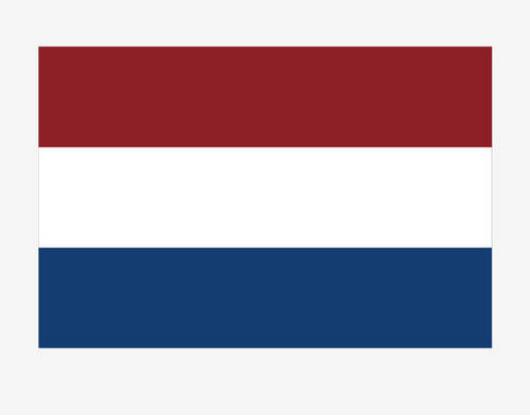
Landmark construction: Dutch windmill

The Kingdom of The Netherlands (Het Koninkrijk der Nederlanden)
[Area] 41,528 square kilometers.
[Population] 17.4 million (Statistics Netherlands, 2020).
[Ethnicity] 76.8% are Dutch, with Turkish, Moroccan, German and Surinamese as the major ethnic minorities.
【 Language 】 The official language is Dutch. Frisian is spoken in Frisia. Dutch, English, Spanish and Papiamento are spoken in overseas territories.
Among the local residents, 23.7% believe in Catholicism, 15.5% Protestantism, 10.6% Buddhism, Islam and other religions, and 50.2% have no religious belief. Nearly 80% of the inhabitants of overseas territories are Catholic (Statistics Netherlands, 2019).
[Capital] Amsterdam, population 870,000 (Statistics Netherlands, 2020).
[seat of government] The Hague, population 545,000 (Statistics Netherlands, 2020).
[Head of State] King Willem -- Alexander, acceded to the throne on 30 April 2013.
King's Day (that is, National Day, the birthday of the current King William Alexander) : April 27; Liberation Day (Allied Liberation Day during World War II) : May 5.
It is located in the northwest of Europe. Germany to the east, Belgium to the south, west, north coast of the North Sea. The coastline is 1075 kilometers long. Twenty-four percent of the area is below sea level, and one-third is only one meter above sea level. Since the 13th century, it has reclaimed land from the sea, increasing its land area by about 6,000 square kilometers. Is a Marine temperate broad-leaved forest climate. The average temperature in coastal areas is 16℃ in summer and 3℃ in winter. 17℃ in summer and 2℃ in winter in inland areas. The average annual precipitation is 797 mm.
【 Constitution 】 Proposed on March 29, 1814 and amended in 1848. It states that the Netherlands is a hereditary constitutional monarchy, with legislative authority vested in the king and parliament and executive authority vested in the king and cabinet. The Privy Council is the highest consultative body of state, chaired by the King himself and appointed by the King.
The parliament consists of one and two houses. Members of both houses serve four-year terms, but elections are not held in the same year.
【 Government 】 Prime Minister Mark Rutte (FDP), Deputy Prime Minister and Minister of Health, Welfare and Sport, Hugo de Jonge (CDU), Deputy Prime Minister and Minister of Home Affairs and Kingdom Relations, Kasje Ollongren (CDU) 66 Democratic Party), Deputy Prime Minister and Minister of Agriculture, Nature and Food Quality Carola Schouten (Christian Union), Foreign Secretary Stef Blok (Liberal Democratic Party).
[Administrative Districts] The Kingdom of the Netherlands is made up of 12 domestic provinces and overseas territories. The overseas territory consists of three overseas administrative regions: St. Ostacius, Saba and Bonnar, and three autonomous countries: Aruba, Curacao and St. Martin.
There are 62 basic courts (town courts), 19 intermediate courts (district courts), 5 appellate courts and 1 Supreme Court. In addition, there are a number of special courts, such as military courts and administrative courts. Judges at all levels are law graduates of higher education and are appointed by the King for life (up to the age of 70 in practice).
[Economy] The Netherlands has long pursued a free trade policy with a high degree of economic openness. According to the data of Eurostat, in 2019, the GDP of the Netherlands reached €8,780.54, with a growth rate of 1.7%, ranking among the best in the Eurozone.
Dutch Macroeconomic Statistics, 2015-2019
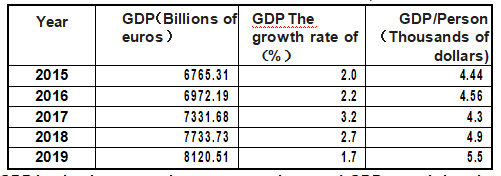
Note: GDP in absolute terms is at current prices, and GDP growth is calculated at comparable prices based on 2010. Source:
Eurostat (GDP), World Bank (GDP per capita)
[Industrial Structure] In 2018, the primary industry accounted for 1.6%, the secondary industry 17.9% and the tertiary industry 69.9% of the Netherlands' GDP. In 2019, investment, consumption and net exports accounted for 20.9 percent, 68.2 percent and 10.9 percent of GDP, respectively. Developed capitalist countries. Export-oriented economy, 80% of raw materials rely on import, more than 60% of the products for export. Eighty per cent of foreign trade takes place within the EU. Exports of goods and services account for about 80 per cent of GDP. It has advanced technologies in electronics, chemicals, water conservancy, shipbuilding and food processing, and developed financial services and insurance. Land, sea and air transportation is very convenient, is an important transportation hub in the European continent; Agriculture is highly intensive, and agricultural exports rank among the top in the world. Major economic data for 2019 are as follows:
GDP: US $909.1 billion.
Per capita GDP: US $52,247.
Economic growth rate: 1.7%.
Inflation rate: 1.6%.
Unemployment rate: 3.5%.
(Source: website of Statistical Office of the Netherlands, same below)
[Resources] Natural resources are poor, but the northern province of Groningen is rich in natural gas reserves, producing 47.7 billion cubic meters in 2016. At the end of 2012, an oil field was discovered in the North Sea, where it belongs.
Industry is well developed, accounting for 17.9% of GDP. The main industrial sectors are food processing, petrochemical, metallurgy, machinery manufacturing, electronics, steel, shipbuilding, printing, diamond processing and so on. It is one of the major shipbuilding countries in the world. Rotterdam is the largest refining center in Europe. Since the 1980s, the Dutch government has actively encouraged the development of emerging industries, with special emphasis on the development of high-tech industries such as space, microelectronics and life sciences.
[Agriculture] Agriculture is highly intensive and mechanized, ranking the second largest exporter of agricultural products in the world. In 2019, agricultural exports totaled 94.5 billion euros, up 4.6 percent year on year. The world's largest seed exporter. The level of dairy production ranks among the top in the world, with per capita milk output of 50 tons, 132 times the world average. Flower production and export ranks first in the world.
Foreign trade plays an important role in economy. In 2018, goods exports totaled $652 billion, accounting for 3.7 percent of the world's total exports. Imports are mainly industrial raw materials, crude oil, semi-manufactured goods and machinery, etc. Exports are mainly food, machinery, chemicals, petroleum products, electronic products, ships and agricultural products.
The Netherlands is a member of the European Union and implements the EU Common Trade Policy.
[Trade scale] According to the data of the Central Statistical Office of the Netherlands, in 2019, the total volume of trade in goods in the Netherlands was 1202.249 billion euros, an increase of 3.43% over the previous year. Among them, the import volume was 460 billion euros, an increase of 4.2% over the previous year, and the export volume was 516 billion euros, an increase of 3.6%. The trade surplus is 56 billion euros.
In 2019, the total volume of the Netherlands' service trade was 455.673 billion euros, an increase of 9.1% over the previous year, including imports of services of 229.971 billion euros and exports of services of 235.702 billion euros, with a trade surplus of 15.731 billion euros.
[Trading Partners] The main trade partners of the Netherlands are concentrated in Europe, and Germany, Belgium and the UK are its top three trade partners in goods. It also includes the United States, China, Russia and Japan. The main service trade partners of the Netherlands are the United States, the United Kingdom, Germany, Switzerland and Ireland.
Top 6 goods trading partners of the Netherlands in 2019
(Unit: 100 million Euros)

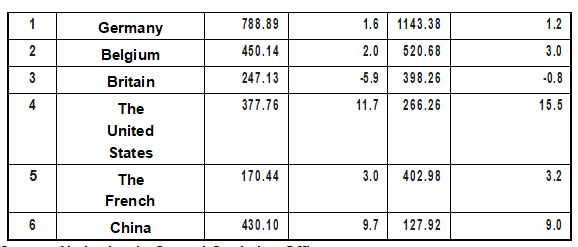
Source: Netherlands Central Statistics Office
Bilateral Trade The trade between China and the Netherlands began in the early 17th century. Since the founding of New China, bilateral trade has developed further. In particular, since the 1980s, bilateral trade between China and the Netherlands has developed rapidly, increasing from US $270 million in 1983 to US $85.15 billion in 2019.
The Netherlands has an advantageous geographical position and a highly developed logistics industry, and entrepot trade is the main support for its foreign trade. According to incomplete statistics, about 70% of China's exports to the Netherlands are transported to other countries through Rotterdam Port and Schiphol Airport. Therefore, in bilateral trade statistics, China's exports to the Netherlands have been greater than its imports from the Netherlands for a long time.
China-Netherlands trade statistics, 2015-2019
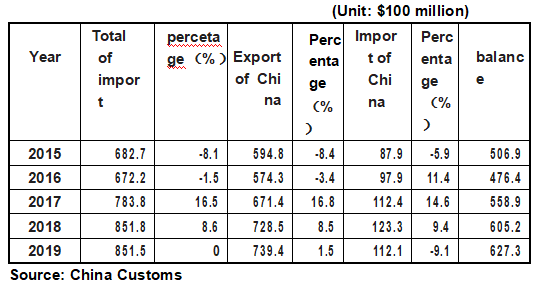
Famous companies in the Netherlands include:
(1) Royal Dutch/ Shell Group of Companies
(2) Philips Electronic N.V.
(3) Unilever (Unilever N.V)
(4) Akzo Nobel N.V.
Dutch companies will be listed in the Fortune Global 500 in 2020
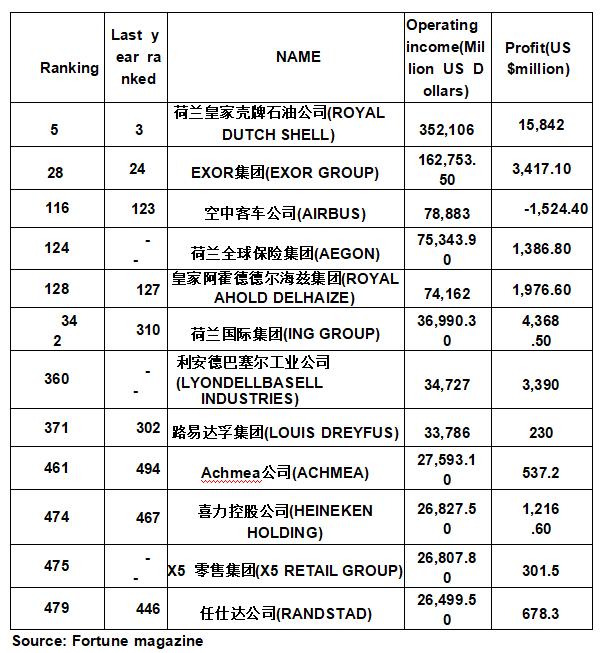
Source: Fortune magazine
The Dutch culture
The diversity of Dutch culture is reflected in the cultural differences between different regions and the influence of foreign cultures. The Netherlands is known for its tolerant and open society. Usually, the image of the Netherlands is associated with trade, tulips, windmills, wooden shoes, cheese, and white and blue glazed porcelain. The Netherlands has attracted attention for its liberal policies on narcotics, the sex trade, gay marriage and euthanasia. The Dutch have a strong sense of time and pay attention to punctuality. The Dutch cook carrots, potatoes and Onions together called the "national dish", every year in October to go out to a restaurant, every family will eat this "national dish". The Netherlands is known as the "land of flowers", among which the most and most famous flowers are tulips. The tulip is the symbol of Holland, so it is known as the "national flower". As a result, Holland has always been known as the "garden of Europe".
Literature and Art
Dutch folklore came into being in the 13th century. At that time, under the influence of the French culture and the awakening of the civil class, the Flemish-centered South successively produced such animal stories as The Legend of Cavalier and The Lenar Fox as well as religious poems and other literary works. In the Middle Ages, Dutch literature was part of a vast Western European tradition that included epic romances of chivalry, such as Floris Ende Blancefloer and Karel Ende Elegast, as well as allegories, Such as "Van den Vos Reynaerde" (the story of Lenar Fox) and "Elckerlyk" (Ordinary People). Humanist literature appeared in the 16th century, and the main representative of the Netherlands was Erasmus. His Ode to a Fool was a satire on the church and society, which was later translated into many languages. Spinoza's philosophical stories are one of the quintessence of 17th century literature. Dutch literature flourished during this period, producing great writers such as Vondel, Hooft, Huygens and Bredero. The Bible was also translated into Dutch at that time. Statenbijbel, published under license in 1637, is considered a milestone in the evolution of the Dutch language. Multatuli was an influential 19th century writer whose novel Max Havelaar was an indictment of Dutch rule in the East Indies (now Indonesia).
The post-war literature has long been dominated by three prominent novelists: Willem Frederik Hermans, Harry Mulisch and Gerard Reve. Other notable contemporary writers include Hella Haasse, Ces Nooteboom, A.F.T. van der Heijden, Marcel Moring, Adriaan van Dis, Thomas Roosenboom And a younger generation of writers like Arnon Grunberg. In classical music, the Netherlands has a large number of wind ensembles, which are distributed throughout the country. The most famous of these is the Royal Concert Hall Orchestra of Amsterdam, which often performs abroad. Famous smaller orchestras include the 18th Century Pipe Orchestra, the Baroque Orchestra of Amsterdam and the Schonberg Orchestra of Amsterdam. Opera Netherland puts on about 10 repertoires a year, mainly in Ahmulterdam. Modern opera forms an important part of the repertoire, and a number of troupes present operas outside the capital, Amsterdam.
The Dutch Music Festival takes place in Amsterdam every June for a month. Another important festival is the Early Dutch Festival in Utrecht, which features medieval and baroque music performed by outstanding musicians and orchestras from the Netherlands and abroad.
- Hot news
(1) Holland House has reached an official partnership with three major European baby food companies
http://xinwen.pconline.com.cn/1208/12087124.html
(2) American enterprises came to the Netherlands to set up factories to produce vegetarian food processed protein
https://new.qq.com/omn/20200612/20200612A01DWX00.html?pgv_ref=sogousm&ADTAG=sogousm
(3) The concept of healthy consumption promotes R&D and innovation. The Dutch organic infant food brand has a global renewal
http://www.cnr.cn/shanghai/shzx/jw/20201123/t20201123_525339779.shtml
(4) An inventory of the world's top 10 food markets V -- France and the Netherlands
https://www.sohu.com/a/315876519_100209123
- National Human Geography
The Netherlands (Holland), this is called the Kingdom of the Netherlands, because of its most famous province, so the Netherlands (Netherlands: Nederland, English :Netherland) is more known as the Netherlands. Located to the northwest of Europe, it is the European starting point of the famous Eurasian Land Bridge. Holland is known in the world as a lowland country. It covers a total area of 41,864 square kilometers and borders Germany and Belgium. As a founding member of the European Union and NATO, it is also a member of the Schengen Convention, the United Nations, the World Trade Organization and other international organizations.
In the 17th century, the Netherlands was the world's most powerful maritime hegemon and was known as the Sea Cabby. In 2014, the Netherlands consists of 12 provinces and 443 municipalities. In 2013, the population was 16,803,700, and the population density was 407.5 persons/km2. The capital of the Netherlands is in Amsterdam, but its central government, the king's residence and office, all government offices and foreign embassies, the Supreme Court and many organizations are in The Hague.
The Netherlands is a highly developed capitalist country, known for its seawalls, windmills, tulips and tolerant social climate, with some of the world's most liberal laws on drugs, the sex trade and abortion. The Netherlands was the first country in the world to legalize same-sex marriage and euthanasia.
(1) Netherlands Food Valley Global 2019 FoodValley Summit Impression 2019
https://v.qq.com/x/page/g3156x6frle.html?
(2) Take you to visit the Dutch meat processing plant, beautiful western food, Albania around the world travel
https://v.youku.com/v_show/id_XMzk0MTQ2NDMyNA==
(3) Human Geography of Backpackers - Amsterdam, the Netherlands
https://v.qq.com/x/page/l0532k03ek9.html?
(4) Think about your own resources before innovation. The Netherlands is the best country to respect natural resources!
https://v.qq.com/x/page/t0669saacvz.html?
- Frame plate: the latest information
(1) One-week international animal epidemic dynamics - phase 293
http://news.foodmate.net/2021/05/592617.html
(2) The three "Hes" are empowered to help AIHOMI break through the siege
https://news.tom.com/202104/4062189931.html
(3) Dutch gabeate -- the vane of imported sheep milk powder market, a new choice of nutrition
http://www.xunjk.com/xinwen/cy/2021/0511/052021_148577.html
(4) The Netherlands to share food safety management experience International Food and Food Information Food Partnership Network
http://news.foodmate.net/2018/11/494739.html
(5) The concept of healthy consumption promotes R&D and innovation. The Dutch organic infant food brand has a global renewal
https://baijiahao.baidu.com/s?id=1684159389400674878&wfr=spider&for=pc
- introduction to national food
Dutch agriculture is based on animal husbandry and horticulture, with a high degree of intensification and specialization
The characteristics of agricultural products processing technology leading, perfect sales network. In 2019, the agricultural output value of the Netherlands was 28.635 billion euros, accounting for 1.35% of GDP. The Netherlands is the world's second-largest agricultural exporter after the United States. According to the statistics of the Netherlands Central Statistics Office and Wageningen University, the export volume of agricultural products in the Netherlands reached 94.5 billion euros in 2019, with a year-on-year increase of 4.6%, and the trade surplus in agricultural products reached 30.5 billion euros, accounting for 55% of the trade surplus in merchandise. Dutch agricultural exports are mainly in horticulture (including fresh cut flowers, plants, bulbs and nursery stock), meat, dairy products and eggs, vegetables and fruits. Germany is the largest producer of agricultural products from the Netherlands
Important export partners, followed by Belgium, the United Kingdom, France, Italy, etc. China ranks sixth and fastest growing (22%).
Exports of major agricultural products in the Netherlands in 2019

The specialization and scale degree of animal husbandry in the Netherlands is high, accounting for more than 40% of the agricultural output value. As of
In December 2019, the Netherlands' hog stock was 11.921 million, a slight increase over the same period. Cattle breeding stock
3.721 million, up slightly from the same period. In 2019, the Netherlands produced about 13.7878 million tons of fresh milk, 137,800 tons of butter, 897,400 tons of cheese, 242,900 tons of milk powder and 382,000 tons of concentrated milk.
Dutch horticulture industry to flower gardening as the leading, most of the products for export. The flower
The horticulture industry, with the flower auction market as the center and the first-class sea, land and air logistics system as the link, has closely linked the planting enterprises with the consumer market and created the miracle of the world flower trade.
The Netherlands has many varieties of vegetables and high yield, among which, tomatoes, cucumbers, carrots, bell peppers, mushrooms, cabbages, etc. are exported in large quantities in addition to meeting the domestic market demand. Dutch fruit to apple and pears mainly, but also the production of strawberries, grapes, cherries, plums and so on.
Food Standards [State Administration for Market Regulation]
The Dutch standard for food grade
https://www.antpedia.com/standard/sp/429135.html
- Framework module: policies and regulations [State Administration for Market Regulation]
IKB system for food safety in the Netherlands
Analysis of Dutch Food Safety Supervision System - Baidu Library
The Dutch food safety guarantee system - https://wenku.baidu.com/view/eff6ab5ed35abe23482fb4daa58da0116c171fad.htmlkingdom of the Netherlands embassy economic and commercial counsellor's office of the People's Republic of China
http://nl.mofcom.gov.cn/article/ztdy/201204/20120408094682.shtml
Foreign trade regulations and policies stipulate:
1) Trade authorities
The foreign trade department of the Netherlands is the International Economic Relations Directorate of the Ministry of Foreign Affairs, which is responsible for the formulation and coordination of foreign trade policies of the Netherlands.
2) Trade legal system
The Netherlands is one of the founding members of the European Union. After the establishment of the single market, the Netherlands, like other EU countries, followed the common laws and regulations of the EU in its foreign economic and trade activities. The EU's common economic and trade laws and regulations mainly include: The common agricultural policy, the common fisheries policy, the common foreign trade policy, the common customs code, "the common rules of origin", "mutual competition law", the common rules of anti-dumping, the common commodity inspection law and the common patent law, common law, the common product technical safety and health regulations "and other common rules on imports from third countries . In recent years, the EU and the Netherlands have also worked out a number of documents, including the "New Strategy Towards Asia", "Long-term Policy on China-Europe Relations", "New Paper on the EU Strategy towards China", "EU Economic and Trade Policy towards China" and "China and the Netherlands Economy".
3) Relevant provisions on trade management
The Dutch government does not restrict most imports and exports. As a member of the EU, the Netherlands follows the EU Common Trade Policy, which controls the import of certain products from non-EU countries. The restrictions focus on sugar, clothing, textiles, steel, arms and ammunition, specialty chemicals and some agricultural products, including plants and animals, endangered species and explosives. The export control mainly includes strategic products (military products and dual-use products) and related technical services, some cutting-edge scientific and technological products, specific chemicals, certain designated products and some agricultural products enjoying export subsidies of the EU. In some special periods, it also prohibits or restricts certain commodity transactions and financial activities with specific countries in accordance with international and EU embargo or sanctions agreements.
4) Inspection and quarantine of import and export commodities
The Dutch government has formed a complete set of commodity inspection and quarantine system based on the relevant laws and standards of the European Union and its own country, and on the basis of relatively complete laws and regulations and relatively complete management and execution agencies.
(1) EU decrees, directives and domestic laws and regulations are the legal basis for the implementation of inspection and quarantine of commodities. According to the EU regulations on import and export commodity inspection, all import and export commodities that need to be inspected must be inspected by the entry-exit inspection and quarantine department or its designated institutions, and the import commodities that should be inspected but fail to be inspected are not allowed to be sold. The consignee of import commodities must register the import commodities with the inspection and quarantine organ at the port of discharge or the station of arrival. The inspection of import and export commodities includes quality inspection, safety and health inspection, quantity inspection, weight inspection, etc.
The Dutch domestic inspection and quarantine regulations include: the Veterinary Drug Law, the Veterinary Drug Law Implementation Regulations, the Meat Product Inspection Law, the Commodity Law, the Cattle Law, the Economic Crimes Law, the Agricultural Product Quality Law and the Consumer Goods Law. All terminal import commodities shall be inspected by the relevant authorities in accordance with the above provisions. In case of conflict between domestic regulations and EU regulations, the EU regulations shall prevail.
The Netherlands has established a sound GMP certification and KKM quality control system for agricultural products. GMP certification is a quality standard for agricultural products based on ISO9002 quality management standard and HACCP technical standard. It was implemented on October 1, 2000 and is mainly dedicated to achieving traceability, early warning and early intervention throughout the supply chain. GMP certificates are issued uniformly by the Dutch Committee for Animal Feed Commodity.
The KKM system is the "Farm Milk Supply Chain Quality Assurance Foundation", which was jointly established by the Dutch dairy industry organization and farmers' associations in early 2000. The purpose is to guarantee the quality of milk and ensure the safe and orderly operation of family farms. It concerns the use of veterinary drugs, animal health, milk production procedures, feed, water, sanitation, disinfection of the production process, drug residue levels and the environment. According to the regulations of KKM, the feed used by its participants must come from a GMP certified manufacturer, the use of veterinary drugs must be GMP certified, and other details of the purchase and use of veterinary drugs by farmers must be registered.
(2) The Netherlands Food and Consumer Product Safety Authority (NVWA) is the functional body responsible for inspection and quarantine policies, planning and implementation. Its work focuses on the implementation of source control of domestic products, and is responsible for the implementation and treatment of the inspection and quarantine of imports from third countries. Food products from other EU member states are exempt from inspection. The trade association shall, in accordance with relevant laws, formulate industry norms and sign relevant agreements with NVWA to implement total quality control.
(3) The destination of the goods is the basic basis for determining the inspection procedure. Goods imported into EU countries must go through documents, certificates and physical inspection procedures; The goods re-exported to a third country only need to undergo document inspection and certificate inspection. The main commodity inspection procedures include: (1) the commodity inspection authorities accept the application for inspection, by the applicant to provide the relevant documents and materials (such as foreign trade contract, letter of credit, the original of the export commodity inspection result sheet, etc.), the commodity inspection authorities in the examination of the above documents meet the requirements, accept the application for inspection; (2) sampling, by the commodity inspection personnel according to different goods form, take random sampling sampling; (3) inspection, inspection departments can use a variety of technical means, from sensory analysis to laboratory instrument analysis, to inspect imported goods; (4) the issue of certificates, commodity inspection authorities to inspection of qualified goods issued inspection certificate, or in the "customs declaration" on the release chapter.
(4) Health and commodity inspection certificate management shall be implemented for some products. For the import of cattle, horses, pigs, meat, processed meat, animal fat, bone meal, blood meal and edible poultry, the official certificate of origin health or commodity inspection shall be issued.
(5) In May 2011, the Sino-Dutch e-Cert information exchange system for inspection and quarantine was put into operation. Since that month, information on the health certificates of dairy products and pork exported from the Netherlands to China has been automatically exchanged by electronic means. At the same time, the Dutch Food and Consumer Product Safety Authority uses the Chinese e-Cert Inspection and Quarantine verification system to verify the information of the inspection and quarantine certificates of food and agricultural products exported from China to the Netherlands.
5) Rules and regulations of customs administration
As a member of the EU, the Netherlands implements the common customs regulations of the EU and has set up various electronic customs declaration and data exchange systems. According to EU Customs Regulation No. 648/2005, which came into force on 11 May 2005, importers are required to provide a summary of the declaration to the Customs before the goods enter the EU Member States. If the shipment takes more than 24 hours, the importer must submit the declaration summary 24 hours before the arrival of the product in the EU. 4 hours' advance notice is required in case of air freight. The summary of the declaration must be submitted electronically by the EU importer and freight forwarder, or in writing under special circumstances.
In principle, imported goods are exempt from customs duties, value added tax and consumption tax during the temporary storage period in the bonded warehouse of the Netherlands Customs; Imports under Dutch customs control are exempt from duties and VAT until they reach their final destination, saving importers cash flow. In addition, the Dutch Customs has also introduced relevant support policies for the processing of import and export goods, such as raw materials or semi-finished products entering the EU territory for processing and re-export, can be exempted from import duty, value-added tax or enjoy tax refund (IPR); Goods under customs supervision exported to non-EU countries, or processed and repaired outside the EU and re-entered the EU, can apply for tariff reduction or zero tariff (OPR); Imported products applying for processing under customs control (PCC) are temporarily exempt from import duties and then subject to duties at the rate of finished goods. This policy is particularly beneficial for industries such as pharmaceuticals, medical care and information and communications, where raw materials (or components) are usually subject to higher import duties while finished goods are subject to lower or no duties. In terms of tariffs, the Netherlands is subject to the EU's uniform tariff rules and is subject to various EU trade arrangements. For import tariffs of various types of products, please refer to the EU TARIC database:
ec.europa.eu/taxation_customs/dds2/taric/taric_consultation.jsp?
Traders who have a good record of compliance with customs requirements, a sound business record management system, a sound financial position and adequate security measures may apply to become an Authorised Operator (AEO), which will enable them to enjoy simplified customs clearance and less stringent customs controls in all EU countries. Goods are allowed to circulate freely in the EU, subject to completion of customs declaration, payment of import duties and compliance with safety, health and environmental standards.
The basic information
Name (English) : Horecava, Food Fair, Amsterdam, Netherlands, 2021
Name (English) : Horecava
Date: January 30th, 2021
Venue: Amsterdam International Convention and Exhibition Center
Exhibition cycle: once a year
Organizer: RAI Exhibitions
Organization: Demaji International Exhibition Co., Ltd
Industry attributes
Hotel supplies and catering
Exhibits range
Fresh fruits and vegetables; Canned classes; Infant food category; Dairy products; Quick-frozen food category; Aquatic class; The beverage category; Smoke wine; Candy class; Agricultural products; Biscuit, Peng Hua food category; Convenient food, grain and oil; Meat and poultry milk; Green health food category; Baking classes; Tea, organic food, local specialties, etc. Food ingredients exhibition area: stevia, vegetable protein, soybean protein, dehydrated vegetables, food raw materials and additives, etc. Food machinery exhibition area: meat food processing machinery, cold drink machinery, all kinds of food processing machinery, food packaging materials, refrigeration equipment, storage equipment, fast food equipment, selling equipment, booth design and decoration service bar equipment, etc.
Show the address
Exhibition Center, Amsterdam, Netherlands
- Food categories
General situation of cheese products:
The Dutch have all kinds of cheese. Cheese is also graded like wine. The Netherlands is truly the country of cheeses. "Gouda", "Aiden" and "Lydon" are the most famous of all Dutch cheeses. Gouda cheese accounts for more than 50% of total cheese production. Aiden cheese is the only cheese in the world that remains perfectly spherical. It is the second most important product of all types of Dutch cheese, accounting for 27% of the total cheese production in the Netherlands. Lydon cheese is also different because of the cumin flavor.
Dairy policy:
The secretariat of the National Food Safety Standards Review Committee issued the "Reproduction of Cheese and Cheese Products of National Food Safety Standards" (draft for soliciting public opinions) to solicit public opinions for the second time. And according to the industry to the Beijing News reporter revealed that the new national standard cheese has been before the reprocessing of cheese to complete the revision, will be announced.
Cheese is also called cheese, known as "ten jin of milk into a jin of cheese", which shows its nutritional value and industrial value. In recent years, with the rapid development of baking and catering industries as well as the rise of reprocessed cheese categories such as children's cheese sticks, China's cheese market has achieved a compound annual growth rate of 22%. Compared with the rapid development of the industry, the standard of cheese and reprocessed cheese in China lags behind the actual demand of the industry development, and the revision of the standard is imminent.
- Corporate Recommendation
In Holland, the major food processing enterprises include Unilever, Bols, Wessanen, Villon and CSM.
Well-known cheese products companies:
A: Peggy Fukuk Company
As the largest international brand of SAVENCIA Group, PACKEVOV is a French cheese brand, born in the foothills of the Alps. It has sold more than a dozen series and more than 50 varieties of products in retail, catering and industrial channels. It has been sold in China for more than 30 years. In the field of cheese, SAVENCIA Group focuses on cheese and specialty dairy products. SAVENCIA Group is the world's largest specialty cheese manufacturer, with 60 years of history of cheese making and the world's top various cheese production techniques.
Miaoke blue
Miaoke Lando was founded on November 29, 1988. It is a brand of Shanghai Miaoke Lando Food Technology Co., Ltd. Its products include original cheese, reprocessed cheese, liquid milk and so on. As an A-share listed company (stock code 600882.SH) with cheese as its core business, MikeLando is headquartered in Shanghai and has 5 factories in China, which are located in Shanghai (Fengxian District, Jinshan District), Tianjin and Jilin. It is an enterprise with large cheese production capacity in China.
- National food data
Food and beverage industry: The food and beverage industry is the largest manufacturing sector in the Netherlands, with a value added of €14.888 billion in 2019, accounting for 1.5% of GDP. The Netherlands is one of the world's largest exporters of agricultural and food products.
The Netherlands is the world's largest producer of milk and dairy products, with nearly half going into cheese and the rest into a variety of dairy products, including butter, powdered milk and industrial ingredients. Major processors include Friesland Campina and Nutricia, which produce about three-quarters of the country's dairy products. Since April 1, 2015, the European Union has abolished the 31-year dairy quota system, and the Dutch dairy production shows an increasing trend.
Foreign exports:
According to statistics, the Netherlands produces 650 million kilograms of cheese every year, two-thirds for export, is the world's largest cheese exporter, the annual export of more than 400,000 tons of cheese production ranks first in the world, the Netherlands per capita annual consumption of cheese about 20 kilograms, cheese has been deeply integrated into the history, culture and social life of the Netherlands.
Chinese Embassy and Consulate General in the Netherlands
Embassy of the Kingdom of the Netherlands
Ambassador: Tan Jian
Willem Lodewijklaan 10 2517 JT, The Hague
Country code: 0031
Tel: 70-3065099 (on duty), 651335779 (on duty), 613664691 (consular protection)
Fax: 70-3551651
Consular Section: 70-3065090 (Sound recording)
70-3065091 (External)
70-3065085 (by fax)
Website: http://www.chinaembassy.nl
http://nl.chineseembassy.org
http://nl.china-embassy.org
E-mail: chinaemb_nl@mfa.gov.cn
Commercial and Economic Office of the Chinese Embassy in the Netherlands
Location: Groot Haesebroekseweg 2A, 2243 EA, Wassenaar, The Netherlands
Tel: 0031-705115559 Fax: 0031-705111206
E-mail: nl@mofcom.gov.cn Website: nl.mofcom.gov.cn
Consulate-General Williamstadt (Dutch Caribbean)
- Dutch Embassy and Consulate in China
Embassy of the Netherlands in China (North China Office of the Netherlands Bureau of Foreign Investment) Address: No. 4, Liangmahe Road, Beijing
Zip code: 100600
Tel: 010-85320321 Fax: 010-85320302
E-mail: info@nfia-china.com
Consulate General of the Netherlands in Shanghai (China Headquarters & East and Central China Office of the Netherlands Bureau of Foreign Investment)
Address: 10 / F, East Tower, East Silver Center, No. 500, Ruby Road, Changning District, Shanghai
Zip code: 201103
Tel: 021-22087388 Fax: 021-22087350
E-mail: info@nfia-china.com
Consulate General of the Netherlands in Guangzhou (South China, Hong Kong and Macao Office of the Netherlands Bureau of Foreign Investment) Address: 34 / F, Yuehai Tianhe City Building, 208 Tianhe Road, Guangzhou City, Guangdong Province
Zip code: 510620
Tel: 020-38132230 Fax: 020-38132296
E-mail: info@nfia-china.com
Address: 54 / F, Yingli International Financial Center, 28 Minmin Road, Yuzhong District, Chongqing, China
Zip code: 400012
Telephone: 023-6399 7007
Fax: 023-6399 7049
E-mail: info@nfia-china.com
Consulate General of the Netherlands in Hong Kong
Address: Room 2402B, 24 / F, Grand Eagle Centre, 23 Harbour Road, Wan Chai, Hong Kong Tel: 00852-25999200
Fax: 00852-28685388
E-mail: information@netherlands-cg.org.hk
Economic and trade organizations (Chamber of Commerce)
The Dutch chamber of commerce
The main function of the Dutch Chamber of Commerce (KVK) is to take charge of the registration of enterprises in accordance with the Dutch Law on Enterprise Establishment and Business Registration, and at the same time to provide information consulting services to Dutch enterprises and policy suggestions to government departments at all levels, so as to promote the economic development of the Netherlands. All companies and legal entities established in the Netherlands (including branches of foreign enterprises) are required to register with the Dutch Chamber of Commerce.
For further details, please refer to the website of the Dutch Chamber of Commerce: www.kvk.nl
Dutch Small and Medium Enterprises Association
The RoyalAssociation of Small and Medium-sized Enterprises (MCB-Nederland) MKB is one of the largest business associations in the Netherlands, with about 120 branches, more than 250 associated associations and 150,000 members covering construction, industrial, retail, entertainment, tourism, business services and healthcare sectors. The aim of the association is to improve the business environment for small and medium enterprises, to enlist government support and to promote legislation in favour of small and medium enterprises.
For more information, please visit the association's website: www.mkb.nl
Association of Chinese Enterprises in the Netherlands
The Association of Chinese InvestmentEnterprises in The Kingdom of The Netherlands ACIEN is a non-profit corporate social organization legally registered in the Netherlands by Chinese enterprises and institutions in the Netherlands. The association is committed to promoting the mutual contact and exchange among the members of Chinese enterprises in the Netherlands and enhancing the mutual understanding and trust among the members. At the same time, strengthen communication between the members and the local business community, promote the business development of the members and expand the economic and trade cooperation between China and the Netherlands. In addition, the association also assists members to understand local laws and regulations, urges members to operate legally, negotiates with foreign countries on behalf of members, safeguards the legitimate rights and interests of members, and helps members to solve major business problems. We will guide and help competent Chinese enterprises to invest and develop in the Netherlands, encourage Dutch enterprises to invest in China, and promote bilateral economic and trade exchanges.
For more information, please visit the association's website: www.acien.nl
The Netherlands Council for the Promotion of International Trade
Founded in 1946, the Netherlands Council for the Promotion of International Trade (NCH) is the largest trade promotion organization in the Netherlands. NCH has a large membership database in the Netherlands and 35 branches in Asia, Eastern Europe, North Africa, South America and the Middle East. NCH provides information and the latest investment and trade opportunities to Dutch ministries, provincial and municipal departments, associations and chambers of commerce, large, medium and small enterprises and investors from all over the world through various trade and economic missions and large-scale exchange and matching events.
Other details, please check out the association website: http://nchchinachamber.nl/
Netherlands Council for the Promotion of Trade (NBSO)
The Netherlands Council for the Promotion of Trade has established six representative offices in Nanjing, Wuhan, Jinan, Dalian, Qingdao and Chengdu. The Dutch Council for the Promotion of Trade in China is a non-profit organization. Its function is to assist Dutch enterprises and entrepreneurs to carry out trade and investment activities in China and to provide information for enterprises and business organizations to invest in the Netherlands.
(1) Netherlands Council for the Promotion of Trade Nanjing Representative Office, 1 Zhongzhong Road, Gulou District, Nanjing City, Jiangsu Province, China
Room 4701, 47 / F, InterContinental Nanjing Hotel
Email address: nbsonanjing@nbsonanjing.com
(2) Netherlands Council for the Promotion of Trade, Wuhan Representative Office, Room 1306, New World International Trade Building, 568 Jianshe Avenue, Hankou, Jianghan District, Wuhan, Hubei, 430022
Telephone: 02785766511
Email address: nbsowuhan@nbsowuhan.com
Room 102, Luneng International Center, 2666 South Erhuan Road, Shizhong District, Jinan, Shandong, 250002
Telephone: 053186065138
Email address: nbsojinan@nbsojinan.com
(4) Netherlands Council for the Promotion of Trade Dalian Representative Office, 25 Tongxing Street, Zhongshan District, Dalian City, Liaoning Province
Room 4910, World Trade Tower, 116001, China
Telephone: 041139869998
Email address: nbsodalian@nbsodalian.com
(5) The Netherlands Council for the Promotion of Trade Qingdao Representative Office, Room 2505, Block A, Yihe International Building, 10 HongKong Mid Road, Shinan District, Qingdao 266071, Shandong Province
Telephone: 053266777515
Email address: nbsoqingdao@nbsoqingdao.com
(6) The Netherlands Council for the Promotion of Trade, Chengdu Representative Office, No.18 Dongyu Street, Jinjiang District, Chengdu City, Sichuan Province
Room 2204, Baiyang Building, 610016
Telephone: 02886923061
Email address: nbsochengdu@nbsochengdu.com
The contact information of other investment consulting institutions, accounting firms, law firms and other service institutions can be found in the Economic and Trade Guide section of the Business Office of the Chinese Embassy in the Netherlands.
Association of Chinese Enterprises in the Netherlands
Address: Johannes Vermeerstraat 7-9, 1071 DK, Amsterdam
E-mail: acien.nl@gmail.com
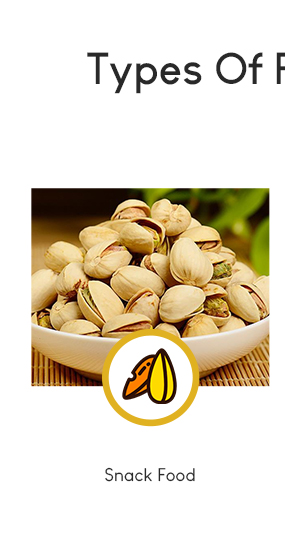 |
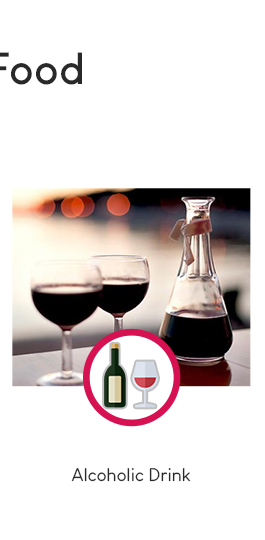 |
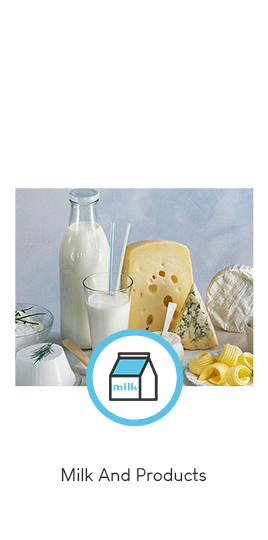 |
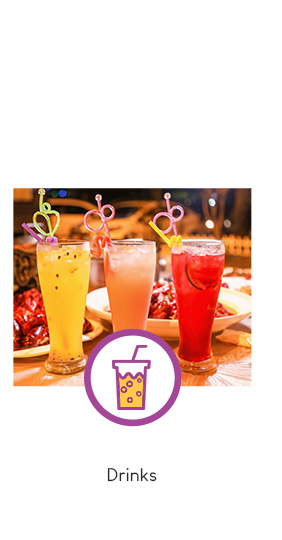 |
||
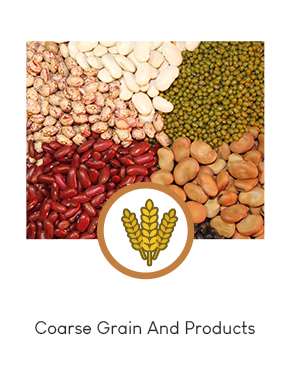 |
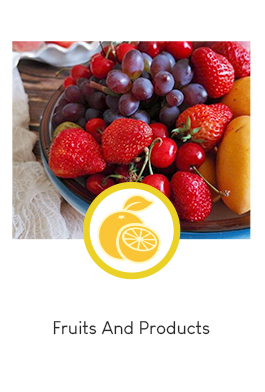 |
 |
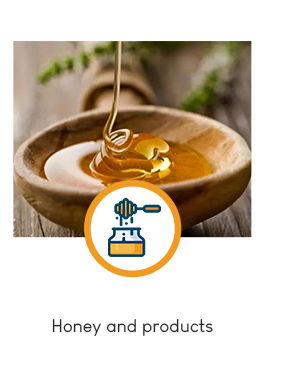 |
||
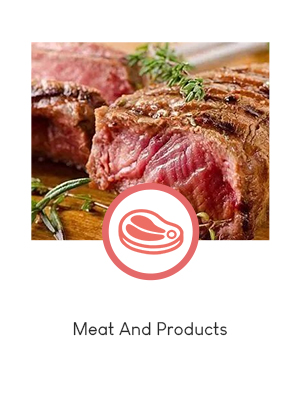 |
 |
 |
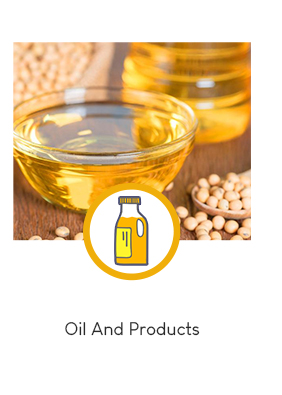 |
||
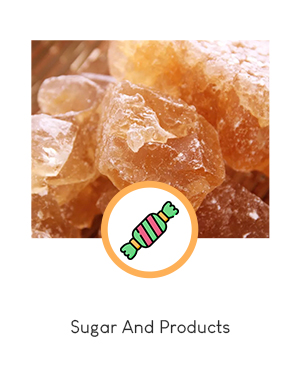 |
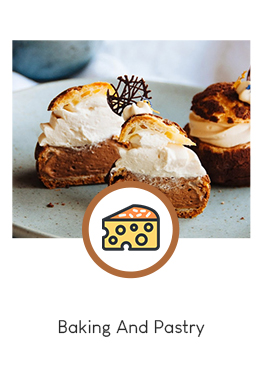 |
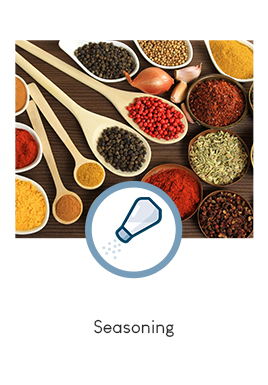 |
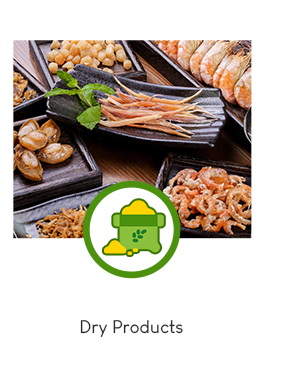 |
||
 |
|||||
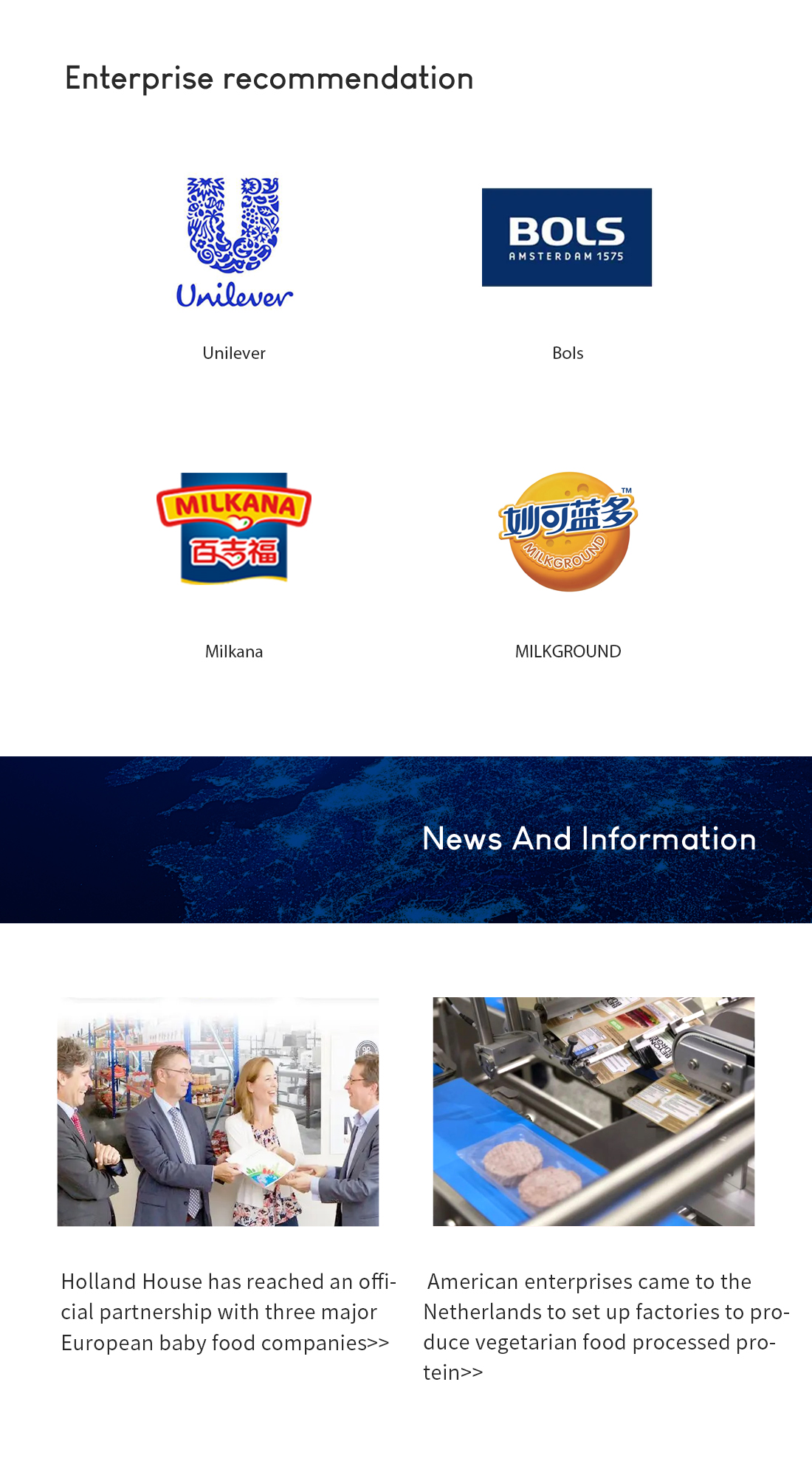
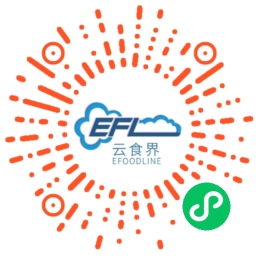 微信小程序
微信小程序